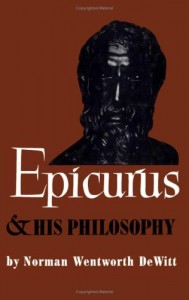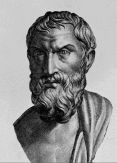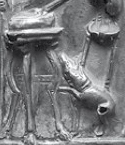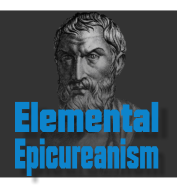The current version is also posted at SoundCloud at this link.
You have been deceived.
If you are hearing these words in the early years of the twenty-first century, then you have already wasted much of your life dealing with nonsense.
If you are surrounded by people who are called “religious,” then you have wasted your time dealing with people who claim that a god created the universe; that a god determined the course of your life before you were born; that a god will tell you what to do while you are alive, and that a god will punish or reward you after death. Depending on where you live, you may have had to live in fear for your life – fear that those who claim to be the chosen people of god will kill you, or enslave you, because you are not one of them.
If you are surrounded by people who are called “highly educated,” then you have wasted your time dealing with people who claim that you should be “good” and “virtuous” – and that following their system of logic and reasoning is the only way to know what the words “good” and “virtuous” mean. These people tell you that it is not possible for you to know anything for yourself, and they consider you to be little more than slaves in a dark cave, waiting for them to enlighten you about a “truth” that only they can bring.
If you are surrounded by people who are called “uneducated,” then you have wasted your time dealing with people who claim that the world is chaotic — totally unpredictable — and that it is useless to plan for the future, or to do anything other than pursue the pleasures of the moment, preferably with drugs, or any of the numberless forms of escapism that substitute for drugs in today’s world.
It is time for you to see that all this is deception, and that you need not hand your life over to it.
It is time for you to shift your devotion and your attention away from the deceptions which have grown from what we today call the “Middle East.” Once again you must ask the question that was first asked almost two thousand years ago: “What has Athens to do with Jerusalem?”
The man who first asked that question knew that Athens and Jerusalem cannot be reconciled. He knew that it is necessary to take sides in the war between those who love their life in this world and those who love some other world. You are living in a world that has chosen sides – and chosen unwisely.
Hundreds of years before Tertulian asked his question about Jerusalem, there arose in Athens the greatest of all teachers and the school that he founded. The philosopher Epicurus showed the people of his day how to be free by asking other questions; questions which we ourselves can ask today.
What has confused so many of you is that you have never thought about the nature of asking questions. You presume that all questions are asked in good faith, and that answers can be established by looking to see how many people agree with them, or whether the answers “make sense” to you given the assumptions that the questioners ask you to make.
Epicurus was the first man who pointed out that you yourself have the ability to find your way out of the dark caves of religion and “higher education.” Epicurus taught that your own abilities – your five senses and the other faculties with which you were born – are the only test of what is true and false. He also taught that all religious speculation, and all academic logic and reasoning, must be based on evidence that men have the ability to confirm or deny for themselves. Epicurus showed you the truth that the preachers and the academics do not want you to see – that all their speculations in fact rely on the evidence of our natural faculties, and that speculation not built on that evidence is worthless.
Where is the proof, asked Epicurus, that a god created the universe? Where is that god now? Where are his continuing acts of creation today? Show me before my own eyes one grain of sand being created from nothing! Show me one grain of sand being destroyed to nothing! If there is no proof that a grain of sand can come from nothing, or go to nothing at the command of a god or any of his preachers, then there is no proof the universe can – or ever did – come from nothing!
Where is the proof, asked Epicurus, that the human soul existed before birth, or after death? Where is the proof that in all the ages a single man has come back to life once being truly dead? Such proof does not exist, and that means that once dead we are nothing, and there is no possibility of reward or punishment after death.
Where is the proof, asked Epicurus, that there is a single standard for what is “good” or “virtuous” in human life? Is it not true that killing another person will be looked on as a great evil if the person killed is an innocent baby? But that killing another person will be looked on as a great good if the person killed is a reprobate, stopped cold in the act of mass murder? All questions of what is right and wrong must be judged in the context from which they arise. There is no tablet of stone written by god or man which contains rules which must be obeyed by all men at all places and all times.
But while ethical questions must be judged by their context, where is the proof, asked Epicurus, that nothing at all can be known with certainty? We can see for ourselves that killing may be good or evil depending on context, why should we accept without any proof that the state of being dead mean may mean delight in heaven or agony in hell?
Unproven assertions about death are bad enough, but even worse are those who tell us that nothing in life can be known with certainty. These are the worst kind of liars, because they presume that we will accept their definition of “true” and “false,” even while they tell us that nothing can be true or false!
Among the saddest of all are those whose education has led them to believe that their very lives are worthless. These people waste their lives and bury their emotions in drugs from the pharmacy, escapism from the television, or “stoicism” from the local bookstore.
In the face of these deceptions, Epicurus taught that we should look for ourselves at the nature of the world. When we do, we will see that the world is governed neither by gods nor by chaos. The sun rises in the east every day, and yet there is nothing truly new under the sun. Using our eyes and our intelligence, we can learn that the consistency we see in front of us must have a basis, and that this basis is neither supernatural nor chaotic.
Epicurus taught that Nature has no ruler over her, and that Nature yields neither to gods nor to chaos. Instead, the world we see around us is composed of eternal elemental particles which we cannot see, but which form the eternal fabric and glue from which the universe is made. There are no ideal “patterns” to which we must conform our lives, or to which preachers and academics have exclusive access. There is no beginning or end to the universe in space or time. Instead there is only what is – the universe of eternal elements with natural properties from which worlds are made. It is from these which the natural laws of the universe arise, and from these by which the universe as a whole teems with life.
As for how we should live, Epicurus asked: To what do all living things look to know what is desirable and what is undesirable? Why would men be any less equipped by Nature to know what to choose and what to avoid than are any other animals? All of us can see, Epicurus pointed out, that young animals of all types – even humans – reach out for pleasure and draw back from pain from the moment of birth. And this they continue to do so long as they remain uncorrupted by false religions and false philosophies.
It is time for you to realize that the deceptions of the last two thousand years are not irreversible. They are not permanent, and they are not your “fate.” You are a being with free will and an intelligent mind. Just as you can choose what type of ice cream you like using your natural faculties, without gods or ideals of virtue to tell you which is best, you can choose how to live your life using your natural faculties as well.
The path to happy living was opened by Epicurus over two thousand years ago – it is time you got to know more about him.






















